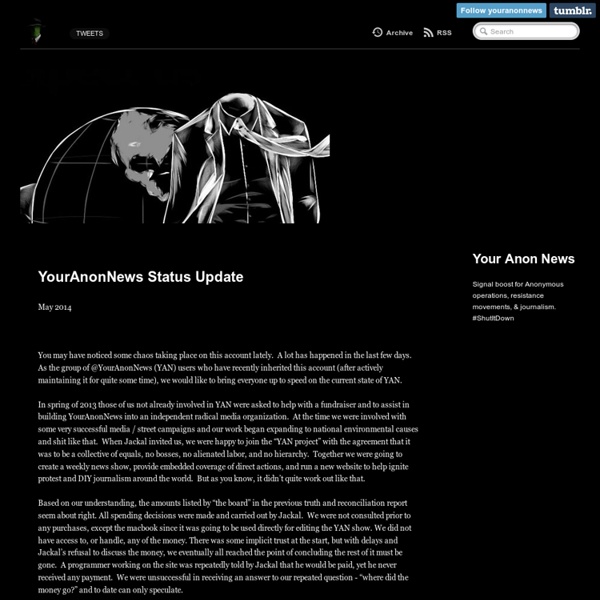Your Anon News
AnonymousIRC : Yes, we are Sabu. And we a...
Anonymous Legal Help
#FreeAnons | Anonymous Solidarity Network
Occupy Toronto Market Exchange
AnonOps Communications
One account. All of Google. Sign in to continue to Blogger Find my account Forgot password? Sign in with a different account Create account One Google Account for everything Google
Anonymous Action
2600: The Hacker Quarterly
AnonCentral | Everything about Anonymous and Occupy
AnonOps :: Index
Anonymous Polska
Related:
Related:




YourAnonNews, YourAnonMusic, Jackal, Chris Banks, Chacal by charasonymous Dec 7